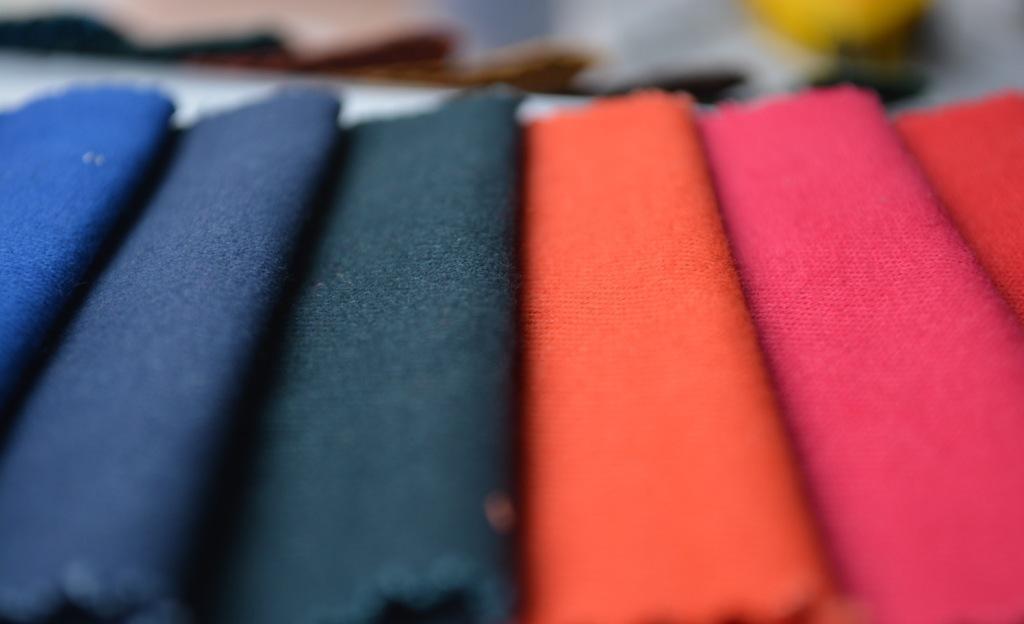
When customizing work clothes, except for some industries with special requirements, the most commonly used fabrics are pure cotton and polyester cotton. kind. These two seemingly different but slightly related fabrics, what position do they each occupy in the customization and processing of work clothes? What are their different characteristics? How to distinguish? Today we will take these two fabrics as examples to teach you how to quickly distinguish them. In addition to looking at the identification plates and labels, the difference between pure cotton and polyester cotton can also be distinguished through other ways.
Today, the editor will help you quickly distinguish between these two fabrics and make the necessary choices based on the characteristics of the fabric and your own needs.
1. Visual distinction
Pure cotton has more fluff and soft color. If it is printed cloth, the difference in color density between the front and back of pure cotton is greater.
Polyester-cotton has less fluff and bright color. If it is a printed fabric, the color density of the front and back of the polyester-cotton fabric is relatively close.
2. Distinguish by touch
Pure cotton is thick, soft, less elastic, and feels soft but not smooth.
Polyester-cotton feels not as soft as pure cotton products, is a bit slippery to the touch, and has slightly better elasticity.
Third, distinguish it from burning
Pure cotton ignites at one point, the flame is yellow, and the burning smell has no peculiar smell. It is the same as burning paper. After burning, the edges will be soft, leaving behind Very little gray-black flocculent ash.
Polyester and cotton will first shrink and then melt when approached to a flame, emitting thick black smoke and smelling like inferior fragrance. After burning, the edges will become hard, and the ashes will be dark brown lumps, but they can be crushed.
4. Distinguish from other characteristics
Pure cotton cannot afford static electricity, is an insulator, will not be allergic to the skin, is easy to absorb water, is heat-resistant and alkali-resistant, will shrink, and is easy to flake. Wrinkles, not easy to dry quickly, needs to be ironed after washing
Polyester-cotton, prone to static electricity and electrical conductors, can be allergic to the skin, not easy to absorb water, not resistant to heat and alkali, not easy to wrinkle, stiff Good shape retention, quick drying after washing and no need to iron.
How about, after reading the above-mentioned distinction methods, will you quickly master the skills to distinguish between pure cotton and polyester cotton?
Next, I will tell you how to choose these two fabrics during the ordering process. Companies that consider insulation, heat resistance, alkali resistance and pursue work clothes wearing comfort and skin-friendliness can consider choosing work clothes made of pure cotton fabrics. For companies where employees don’t have extra time to take care of their work clothes, choosing polyester-cotton work clothes with good wrinkle resistance has become a good choice. In addition, polyester-cotton work clothes with a cotton content of 80% and a polyester content of 20% are comfortable to wear, wrinkle-free and crisp.
At Congshi, we strictly control the high-end customization of workwear, conduct professional testing, select high-quality fabrics, and conduct innovative research and development for exclusive needs based on customer needs, industry characteristics and functionality. In the selection of materials, we insist on being natural and environmentally friendly, and take color fastness, wear resistance, washability, resilience, moisture absorption and breathability as the basic parameters of fabrics, and perfectly apply them to clothing products.
In order to provide the most perfect work clothes customization service, we will pay special attention to every detail!








